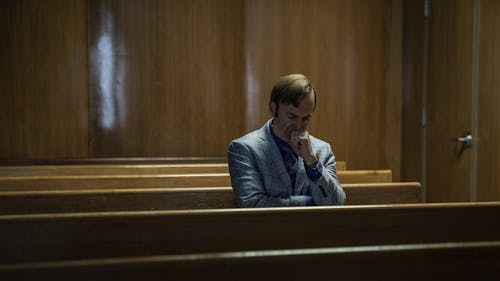Examining TV spin-offs: Are they erasing originality?

In the last few years, our TV channels and streaming services have been flooded with spin-off series such as "Fuller House," "Grown-ish," "Girl Meets World," "How I Met Your Father" and, most recently, "That '90s Show."
But the concept of a spin-off show is anything but recent — it's been a money-making model since the dawn of TV. So why do networks produce spin-offs? Aside from their established audiences and lack of risk, spin-offs are ideal for presenting audiences with nostalgia.
Watching something familiar and reminiscent of perhaps a simpler time can be soothing and reduce anxiety about the unknown. Audiences seeking this familiarity will only increase viewership which doesn't hurt studios by any means.
There are many ways to produce a spin-off. Some spin-offs focus on one of the main characters from the original series, like "The Patrick Star Show." Other spin-offs choose to focus on a less well-known, recurring character from the original series, like "Better Call Saul," while others focus on the children of the original main characters, like "That '90s Show."
In recent years, spin-offs usually land somewhere within the spectrum between success and failure, which begs the question: What makes a good spin-off?
For these spin-off shows, it can be difficult to emulate a similar feeling to the previous series while retaining originality. How does one please the original audience and simultaneously attract a new audience? Should the original series remain a strong presence or be left behind in favor of new plot points?
Let's do a case study: Why did the Emmy-nominated "Breaking Bad" spin-off, "Better Call Saul" succeed, while the "Friends" spin-off, "Joey," failed miserably until its cancellation?
The answer is substance. Both Saul and Joey were the comic relief in their respective original series. But in their spin-offs, Joey never grew out of the constrictions of his "Friends" character, while Saul was able to make this transition smoothly.
Because Joey was already well-established in "Friends," the spin-off's writers opted to give him the same personality with little character development. This resulted in "Joey" having little originality. This is also a flaw in currently running "The Patrick Star Show," a spin-off of "SpongeBob SquarePants."
A successful spin-off provides greater context to the original story and immerses you deeper into the world. The spin-off must be a story in its own right, with limited references to the original series.
An appropriate amount of callbacks to or cameo appearances from the original series is acceptable fan service, but a quality spin-off doesn’t rely on them. As a result, spin-offs must toe the line of being sufficiently distinct from the original to make the watch worthwhile while still staying true to the original story and characters.
Audiences notice the difference between a cash grab and a franchise that is earnestly attempting to expand upon the story. A successful spin-off provides substance to a character that wasn’t fully developed in the original series.
Namely, the successes of "Better Call Saul," "House of the Dragon" and "The Mandalorian" are due to their focus on these types of characters — a decision that improves the quality of the series as almost all of the character-building is original, and writers do not solely rely on previously conceived ideas and plot lines.
Because spin-offs are often created as a result of television networks wanting to make the safe decision to profit off of already established worlds, it's ironic that the most successful spin-offs are the ones that develop the most original content.
Regardless if spin-offs are successful, they are exceedingly oversaturated. Some spin-offs even have their own spin-offs, such as "Good Times," which was a spin-off of "Maude," a spin-off of "All in the Family."
Admittedly, there's value in the potential of spin-offs as useful tools for thinking outside the narrative box the original show placed the writers in. While spin-offs carry this potential to greatly expand upon universes, they still perpetuate a dangerous hesitancy and refusal to risk creating original storylines over established universes and markets.
Although valuable in moderation, the option to produce spin-offs shouldn’t limit our ability to create original ideas. Nostalgia may sell, but if no new stories are developed, there won’t be any nostalgia for future audiences to buy.



